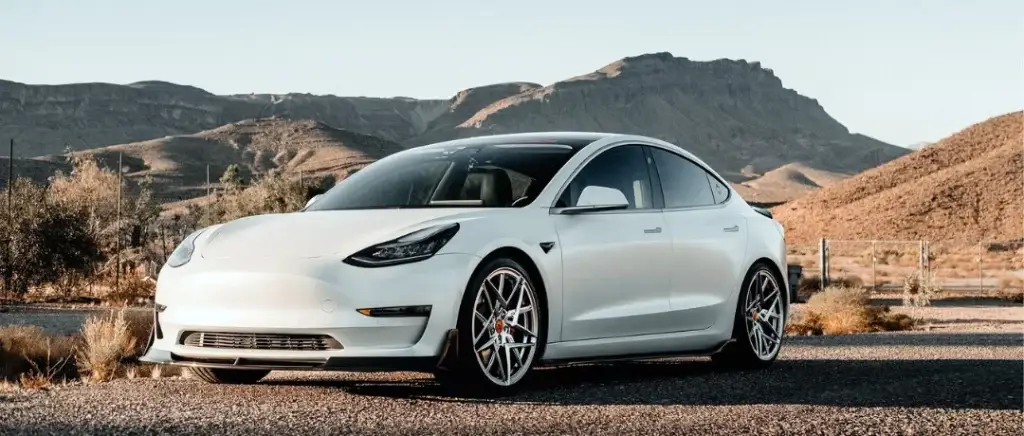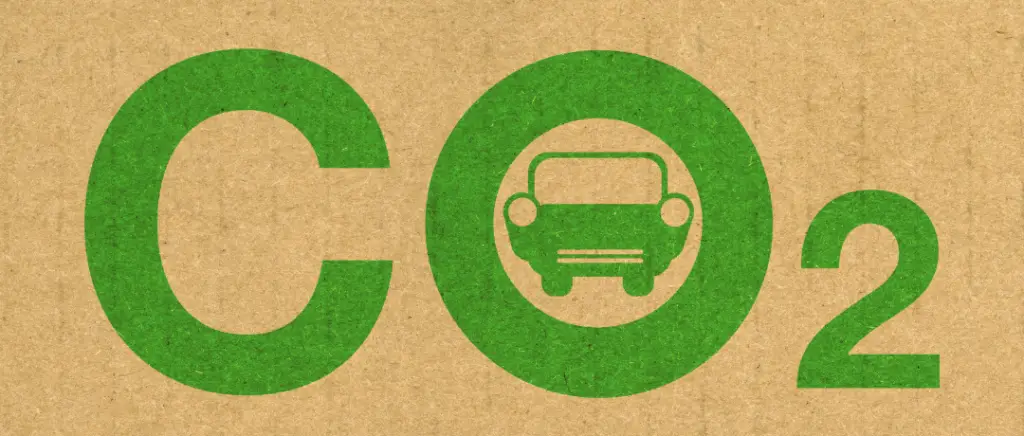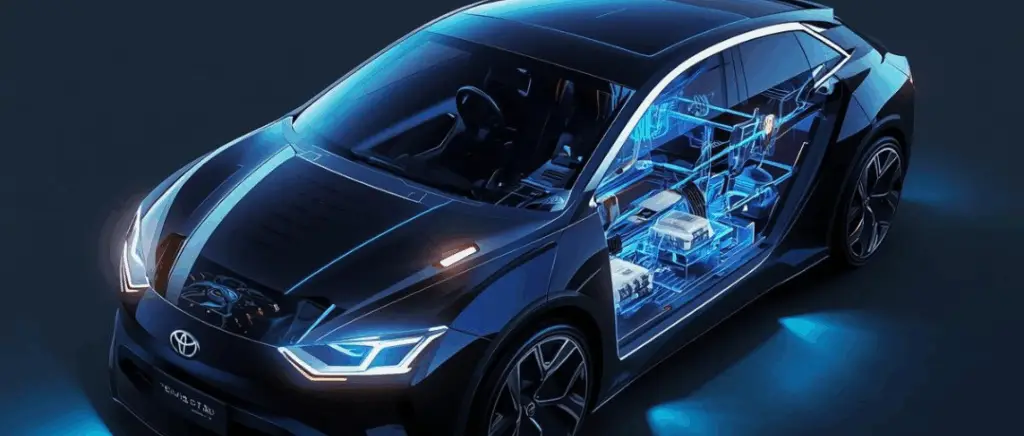Monday to Friday 9am - 12.30pm - 2pm - 7pm
Electric cars worldwide
To begin with, let's take stock of the presence of electric vehicles on the world car market and the state of mind of motorists when it comes to electric cars.
The proportion of the automotive market accounted for by electromobility
As for the proportion of electric cars on the market, Europe remains at the top of the rankings in terms of the number of registrations of electrified vehicles in the country.
On a country-by-country basis, Norway is leading the way, with a large share of the car market devoted to electric mobility. In fact, by the end of the first half of 2022, the Norwegian market will be dominated by electric vehicles, more than three out of four newly registered vehicles were electric. By way of comparison, only 12% of the total French car fleet is electric, a figure that could be much improved.
The current trend is therefore relatively towards electric vehicles, with an increasing number of motorists each year wishing to switch to low-carbon vehicles.
Motorists' interest in electric mobility
Is the appeal and awareness of electric mobility among motorists the same in all countries? It turns out that this is not really the case.
A survey conducted by the Global Consumer Survey studied the proportion of respondents considering an electric car as an option for their next vehicle purchase.
According to the results of the study, the rate of interest in electric vehicles in 2022 will still be very disparate from one nation to another.
Korea topped the survey. In fact, Koreans are the population most interested in electric cars, with a share of 40% of interest to electric cars. Switzerland comes second, with a 34% share of electric mobility.
Finally, in last place on the podium, we find the United Kingdom hot on the heels of the Swiss, with 33% of Britons considering an electric car as an option for the purchase of their next vehicle.
With regard to FranceHowever, the results are not so encouraging. In fact, France comes bottom of the league table, with a share of only 19% of the French interested in buying an electric vehicle.
So there is still plenty of room for improvement to encourage the French to switch to electric vehicles.
However, the results may differ from one study to another. In fact, a survey published by the Odoxa also sought to gauge French interest in electric cars. The results: 30% of them plan to buy an electric vehicle.
In this sense, government measures are also an important lever for facilitating and accelerating the transition to electric vehicles in France. That's what we're going to talk about next.
Read also : Why switch to electric cars in 2023?
You would like toto electric?
Beev offers multi-brand 100% electric vehicles at the best prices, as well as recharging solutions.
Government measures to promote electric cars
The end of combustion engines in favour of electric vehicles
Instead of a more gradual transition, the European Union has opted for offensive measures, with the announcement of the end of internal combustion vehicles by 2035. These decisions were adopted with a view to decarbonising the automotive market and, more broadly, in a logic of preserving the environmentmore than necessary.
Meanwhile, in the United States, the Biden government has also taken steps to promote electric mobility, setting the goal of electrifying 50% of the US car fleet by 2030.
Read also : Electric cars: government boost for electric mobility
All this represents promising data. Nevertheless, electric mobility is still not unanimously supported. Some European countries are still particularly reluctant to introduce government measures to promote electric vehicles. These include Italy, Portugal, Slovakia, Romania and Bulgaria.
The latter are opposed to such a rapid transition to a zero-emission 100% car market, and are also opposed to the development of a new car market. wish to benefit from a 5-year postponement to complete the process of phasing out combustion vehicles altogether.
Car brands are also gradually making the transition to low-carbon vehicles, like Jaguar, which wants to offer an electric 100% catalogue from 2025.. This is also the case for Swedish carmaker Volvo, which has committed to launching one new electric vehicle model per year, with the aim, by 2025, of half their sales being electric cars 100%.
The network of charging points across Europe
To ensure the successful expansion of electric vehicles, it is essential toensure a growing and proportional installation the number of charging stations available as uniformly as possible across the country.
More and more recharging stations in France
According to theAvere France, 71,630 charging points are currently available in France. Although this figure is rising, it is still insufficient. We need to step up our efforts to ensure uniform and optimum availability of recharging points throughout the country, particularly in the most rural areas where there is still a significant lack of charging points.
New financial aid for the installation of charging points
As part of its drive to expand the number of recharging points in France, the French government has just set up new financial support for the installation of recharging points for small service stations. The government has announced that this aid will cover between 60% and 70% of the total cost of installing a charging point.
This state support is designed to trigger a process of massive development charging points for electric cars in rural areas, for small service stations. The aim of this new government grant is to reduce disparities the lack of charging points in the countryside, thereby ensuring homogeneous expansion of these.
Ecological bonus
In terms of subsidies for electric vehicles, the environmental bonus is also available.
In addition, according to the latest government announcements, a solution for social leasing has also been introduced.
As a result, the amount of the ecological bonus has now been increased to from 6,000 to €7,000 for half of the lowest-income households wishing to acquire a green vehicle.
Here is a summary of the amounts of the ecological bonus for private and commercial customers for 2023:
| Catégories | Depuis le 1er juillet 2021 | À partir du 1er janvier 2023 |
|---|---|---|
Electric vehicles (CO2 ⩽ 20g/km) costing less than €47,000 | 27 % of the price up to €6,000 | 27 % of the price up to €5,000 |
Electric vehicles (CO2 ⩽ 20g/km) costing less than €47,000 (legal entity) | 27 % of the price up to €4,000 | 27 % of the price up to €3,000 |
Electric vehicles (CO2 ⩽ 20g/km) from €47,000 to €60,000 | 2 000 € | 1 000 € |
Electric vans or hydrogen-powered vehicles (CO2 content ⩽ 20g/km) over €60,000 | 2 000 € | 1 000 € |
Plug-in hybrid vehicle (CO2 levels between 21 and 50 g/km) of up to €50,000 and autonomy > 50 km | 1 000 € | 0 € |
Read also : Ecological bonus, what changes in 2023?
The availability of charging points in Europe
Across the European Union, there are Europe currently has 330,000 public charging pointswith the presence of five recharging points every 100 km, on average.
Despite this, the number of recharging points across Europe remains highly disparate. Germany, France and the Netherlands alone have a total of 69% accessible charging stations across Europe, while ten European countries still have no recharging points available within a 100 km radius.
The increase in the number of charge points is therefore a decisive factor that must not be overlooked if we are to ensure a high level of efficiency. sustainable growth in the electric car market.
Car budget 2023 → 100 000 : is the number of recharging stations which will be opened and installed to the public in 2023, thanks to a €300 million call for projects. Home charging points for private individuals, meanwhile, will continue to benefit from a reduced VAT rate of 5.5 % for their installation.
Read also : Free charging points: where and how to find them?
Growing production of electric cars
The number of electric cars being produced around the world is increasing dramatically. Indeed, car manufacturers are relying more and more on electric mobility with regard to their catalogue of vehicles.
At the same time, we are seeing an increase in the number of plants in France dedicated to the production of electric vehicles and their components.
The cradles of electric car production in Europe
Germany is currently Europe's leading producer of electric vehicles. Tesla has also chosen to establish itself in Germany with the opening of a new factory on the outskirts of Berlin since March 2022, which will enable 500,000 electric SUVs to be produced every year.
In second place is France, which continues to rely on some of its major local plants to manufacture components for electric vehicles.
Of particular note is the large Stellantis Hordain plant, located in northern France, which houses the production of100% electric vanslike the Peugeot e-Expert and Citroën ë-Jumpy.
In addition, an investment plan has already been launched for the construction ofan electrical separator plant in FranceThe aim is to cover 100% of demand for electric separators in France.
Read also : Electric cars made in France
But that's not all. Spain is also planning to take advantage of the rise of the electromobility market and develop its production of electric cars. Spain has recorded an increase of 54.7% in its production of electric cars over the first nine months of 2022The number of electric vehicles produced in France was 83,733 last year.
What's more, carmakers on the Iberian peninsula have invested heavily in the local production of electrified vehicles. This should enable Spain to follow in the footsteps of its French and German neighbours and become a leader in the field. Europe's leading producer of electric vehicles by 2030.
The expansion of electric mobility in China
Despite the efforts of the United States and Europe to expand their domestic production of electric batteriesChina still holds its place as the world's the world's leading producer.
The Middle Kingdom is now a major producer of batteries for electric cars on a global scale. China currently produces more than half of all electric car batteries sold worldwide.
However, the French government is also aiming to initiate strong production of electric batteries locally, as the President of the Republic, Emmanuel Macron, confirmed on Twitter:
Producing electric batteries for cars in France rather than importing them from Asia? We were told it was impossible. We're in the process of doing it, in the Hauts-de-France region, which is set to become Europe's "battery valley". battery electric. The results!
- Emmanuel Macron (@EmmanuelMacron) February 11, 2022
Read also : How can I save the battery in an electric car?
What's more, we're also seeing the emergence of a growing number of models for Chinese electric cars. Chinese carmakers are planning to focus on electric vehicles over the next few years, with the aim of becoming the world's first electric vehicle manufacturer. leader in the electric mobility market.
Read also : Top 7 Chinese electric cars in 2023
In conclusion
We can assume that the standards set in favour of electric mobility by the various governments, particularly at European level, will ensure its long-term development. What's more, it's a trend that will undoubtedly be followed by other countries around the world, putting the emphasis on electric mobility. decarbonisation at the heart of the automotive market in the years to come.
The future of electric cars therefore looks encouraging and even fruitful, driven by a gradual increase in the number of models and options available for near-zero-emission vehicles. The next step for the electric vehicle market is to be in a position to offer an increasingly diverse range of electric vehicles that will meet all the needs of the market. drivers' needs and expectations.
































